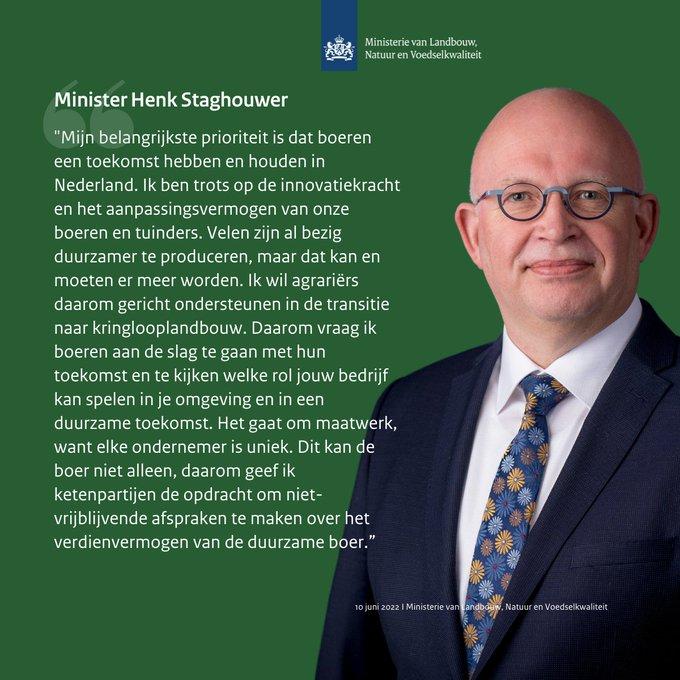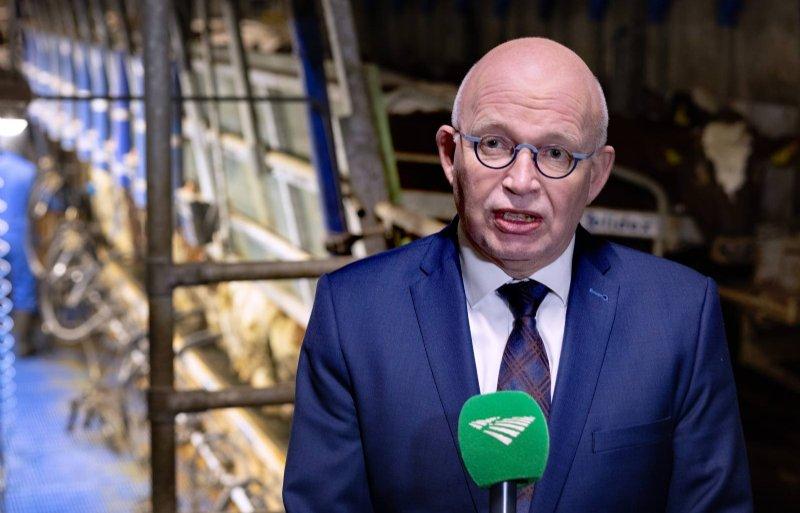Agriculture has a future in the Netherlands, but it will look fundamentally different. That is what Agriculture Minister Henk Staghouwer (CU) writes in the Parliamentary Letter 'Perspectives for agricultural entrepreneurs' published on Friday.
© dirk hol
Business changes are necessary, according to the minister, because the environmental limits have been reached. Adaptation is possible through technical innovation, extensification, switching to new products or services, relocation or stopping. Expansion of scale remains possible provided the environment offers space. The possibilities depend more than ever on the location of a business.
By 2035, 24 billion euros will be available for a Transition Fund. Young farmers will receive extra 'establishment aid' through the Common Agricultural Policy (CAP).
Confidence in agriculture
Staghouwer is confident that agriculture can handle the changes. I want to use target-based management to give farmers room to decide for themselves how to organize their business. For water quality and animal welfare, however, means-testing will remain the standard. We are working on measuring techniques at farm level for nitrogen, for example. It could form the basis for performance-related remuneration.
In the vicinity of Natura 2000 areas, in peat meadow areas and on high sandy soils with drought-prone stream valleys, farmers must extensify. To achieve water goals, crop farms may have to close their doors.
Taking on challenges
The cabinet wants to enable entrepreneurs to meet the sustainability challenges. The minister mentions as options the cultivation of crops as biobased raw materials, carbon capture and valorization with certificates, long-term nature management packages, agroforestry, saline cultivation and multifunctional management. The new CAP also addresses these issues.

Dairy and beef farms must be fully soil-bound by 2032. In September Staghouwer will come up with the further details. For open cultivation, integrated crop protection with virtually no emissions will become the norm. Just like sustainable land use.
Cooperation between livestock and arable farming will be encouraged through crop rotations. Staghouwer wants to tackle restrictive regulations. The admission of low-risk pesticides will be accelerated. Parties in the chain have to financially reward the use of resistant varieties and less use of chemicals.
This is a good thing.
Animal production
Staghouwer indicates that there will remain room for intensive and high-tech agricultural companies, provided that they produce with low emissions and animal-worthy production. It is important that sufficient locations remain available for this," the minister says. He points to new stall systems in which manure is removed directly from the stall separately to be processed.
The chain also has to get to work. Staghouwer wants to get round the table with chain parties this summer to develop a plan to improve the earning capacity of the sustainable farmer. Chain parties will get six months to make demonstrable progress, otherwise Staghouwer will come with a legal obligation.
In addition, the chain will have to make more efforts to improve the sustainability of the production chain.
'Yes, we are asking substantial adjustments from entrepreneurs, but the costs and pain involved must be shared,' says Staghouwer. He expects chain parties to play a pioneering role.
Source: newharvest
